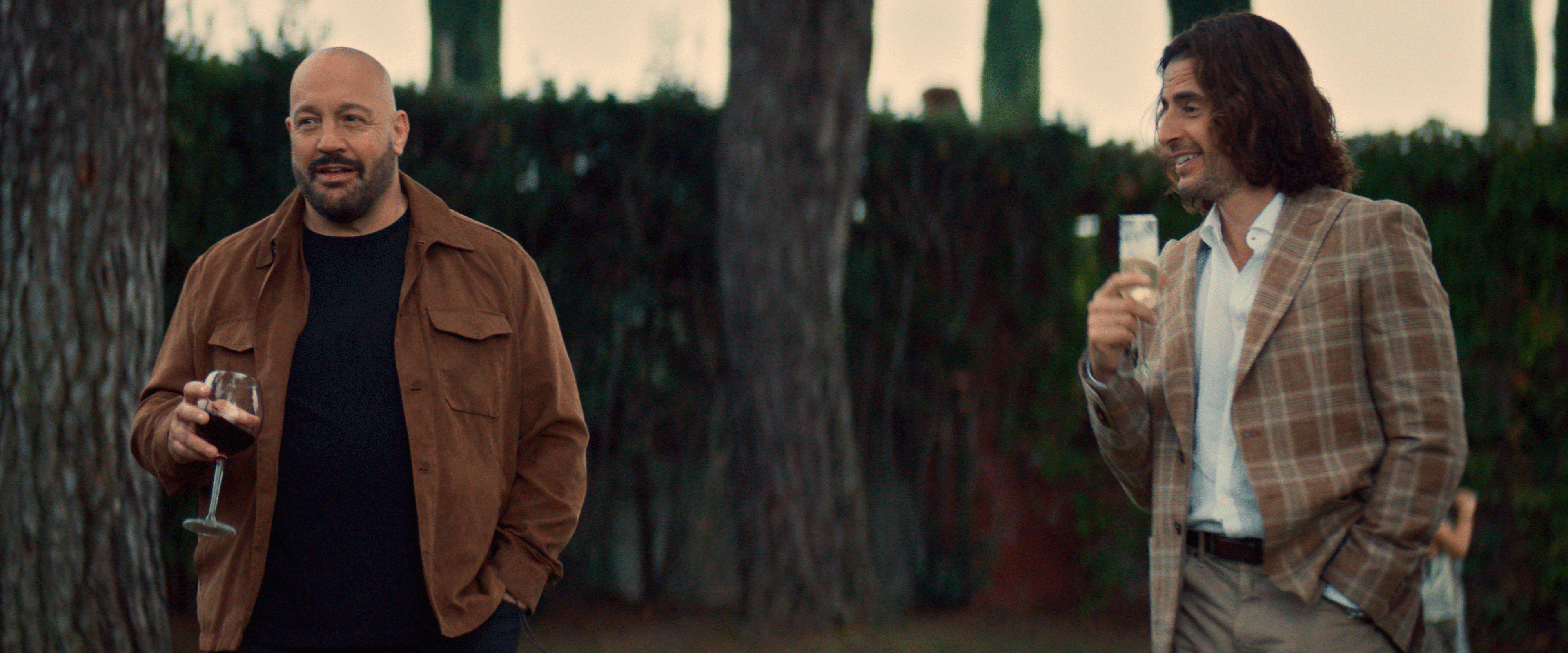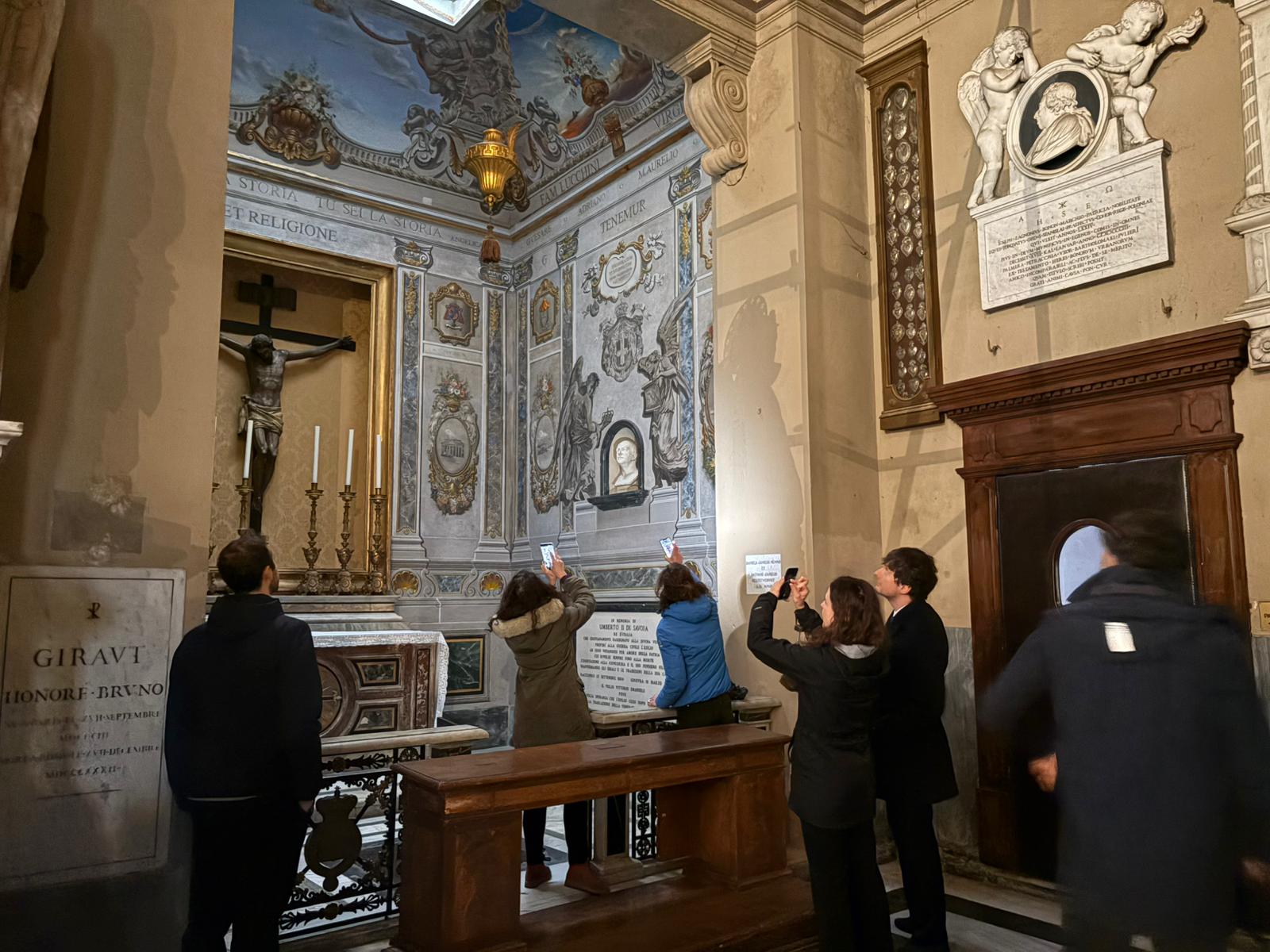The young Italian priest and influencer Alberto Ravagnani, 32, surprised his hundreds of thousands of social media followers a few days ago by publicly announcing his decision to leave the priesthood.
Ravagnani had gained popularity on digital platforms, where he posted messages with religious content aimed especially at young people. However, his activities were not without controversy, as he was criticized on several occasions for collaborating with product brands and advertising companies.
Until his decision, Ravagnani served as parochial vicar of St. Gotthard Parish and actively collaborated in youth ministry in the Archdiocese of Milan.
His case, along with others such as those of Daniel Pajuelo, Sister Cristina, and Father Sam, outlines a new scenario in which media exposure, hyper-connectivity, and cultural changes raise profound questions for the Catholic Church.
Woundedness of priests in the digital world
Father Ignacio Amorós, a Spanish priest known for his commitment to digital evangelization, shared his reflections on these cases with ACI Prensa, the Spanish-language sister service of EWTN News.
Drawing on his own experience, he focused on a "wound" that affects many priests present on social media: the lack of support and the distrust that arises in the face of these new forms of evangelization, even within the Church itself.
Amorós, who holds a doctorate in theology, is the founder of the evangelization channel "Se buscan rebeldes" ("Rebels Wanted") and the recently launched "Rebeldes Podcast." He explained that situations of this type seem to be part of a larger challenge that the Church is called to discern more deeply.
He emphasized that this does not only happen to priests who are active on social media, since "there are many who, unfortunately, are leaving the priesthood in the early years of their ministry." He said there is an underlying issue that goes beyond the digital world.
"Secularization, the situation of the Church in the world during this change in epochs, the loneliness of priests, and the changes in methods of evangelization also have their influence," he said. All these factors "constitute both a challenge and an opportunity, but they can also cause envy and a feeling of loneliness, especially among young priests."
Many of them, he explained, "have the feeling that they are dedicating their efforts to managing a decline, instead of something that excites them. There is a lot at stake, so it's important not to judge a priest who started with good intentions."
A compassionate perspective
He said it is always sad news when "a fellow priest leaves the ministry, since we are priests for all eternity. But I'm not judging him; I look at him with compassion, with mercy, knowing that we are all vulnerable, and I wish him the best and pray for him. I trust in the Lord's plans for him."
Amorós pointed out that everyone who evangelizes and engages in an apostolate — whether online or in the parish — "always carries a cross, just as Jesus Christ did." For this reason, he emphasized the importance of caring for and supporting priests with a real community, especially those who are out there on social media and those "who risk their lives for the Lord."
"We must protect them from external attacks, as well as from those within themselves, such as pride, their ego, or vanity. But with love, helping them in the same way that missionaries who evangelized in India or China were supported."
Spanish priest Father Fernando Gallego is one of the founders of the Catholic Youth platform, which has more than 200,000 followers on X. He also received an award in 2023 for his social media presence.
Gallego, who holds a doctorate in canon law and is the current chaplain of Sierra Blanca school in Málaga, Spain, emphasized in an interview with ACI Prensa that social media can be a positive force, provided they are used responsibly. He specifically warned against the temptation to vanity, which can distort "what started out with good intentions."
Cultivating a strong interior life
Concrete situations like that of Ravagnani, Amorós explained, invite us to reflect on the need to be authentic as well as "to safeguard our purity of intention, to remain humble when you have a presence on social media — which is a very powerful platform — and to be willing to leave social media if it's God's will."
Like Amorós, Gallego emphasized the need to be authentic and that Christ alone should be the focus: "We should go on social media not to seek success, but to give glory to God."
He noted that to achieve this, "we must make ourselves small," so that God may become great, cultivating humility and having "a strong interior life," so that dangers may be kept at bay.
He also emphasized that the most important thing is the ministry, administering the sacraments and preaching the word of God. "We are priests 24 hours a day, and we must uphold our dignity as priests," he pointed out.
"We shouldn't judge, because we don't have all the facts and we don't know what's in Alberto's heart or in the heart of anyone else who has left the ministry, but I think it's important for a priest to know how to maintain his role, to take care of his appearance as a priest, on social media as well. We are representatives of Jesus Christ," he said.
This story was first published by ACI Prensa, the Spanish-language sister service of EWTN News. It has been translated and adapted by EWTN News English.



